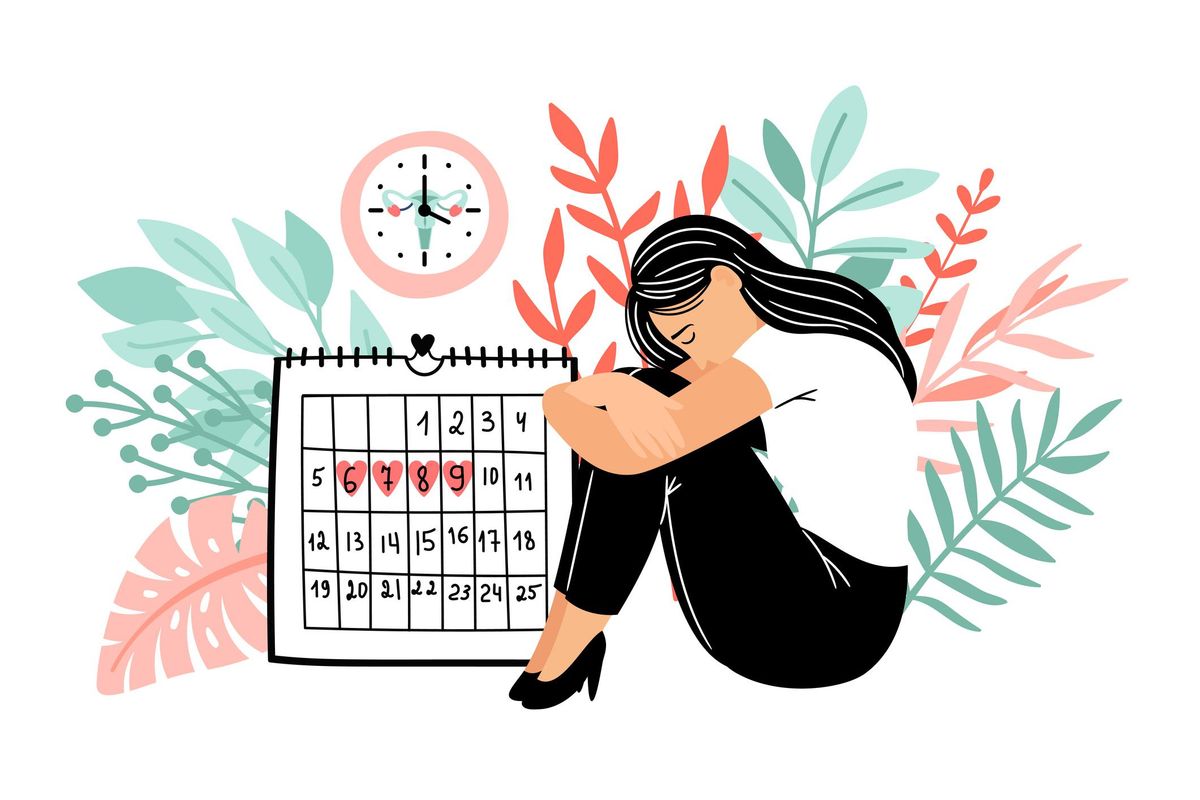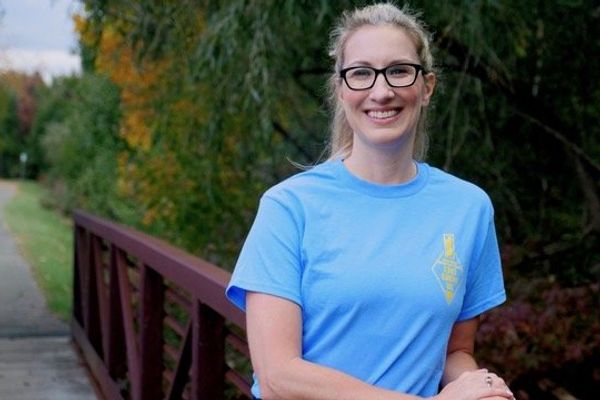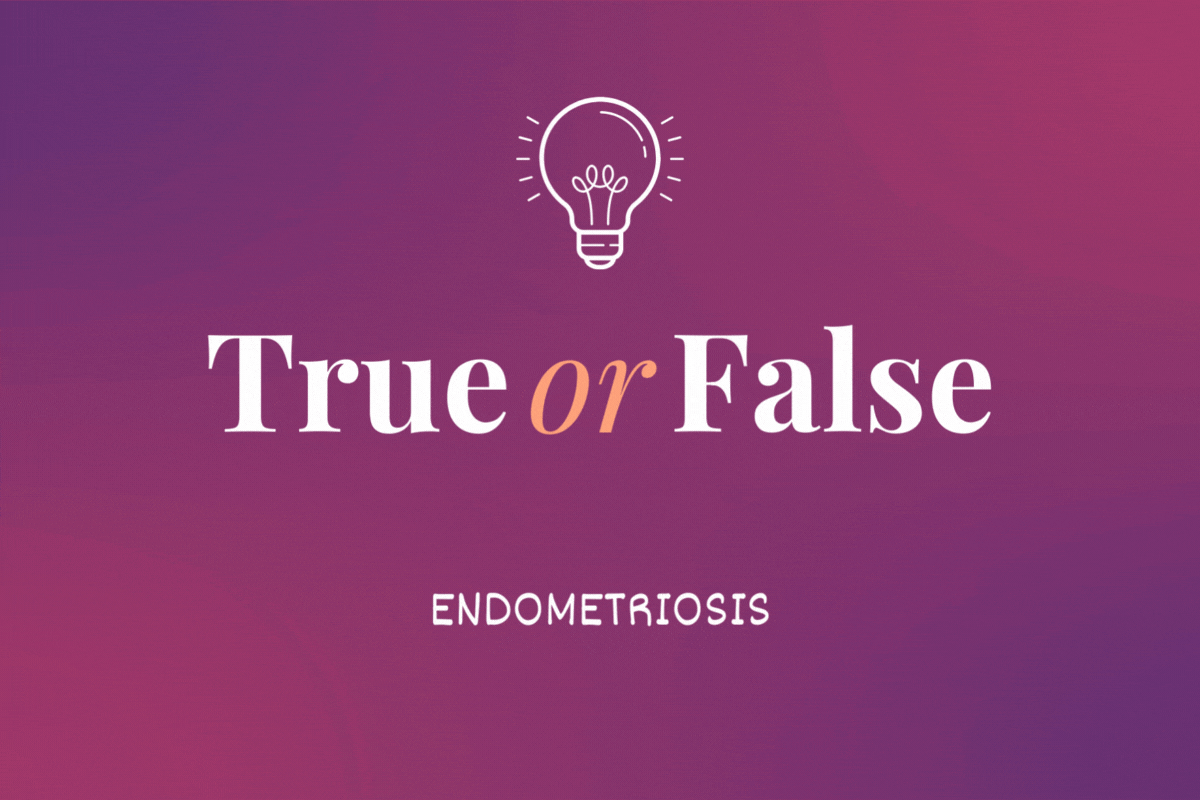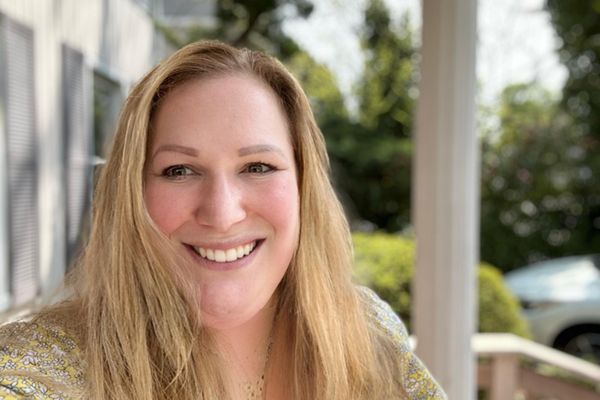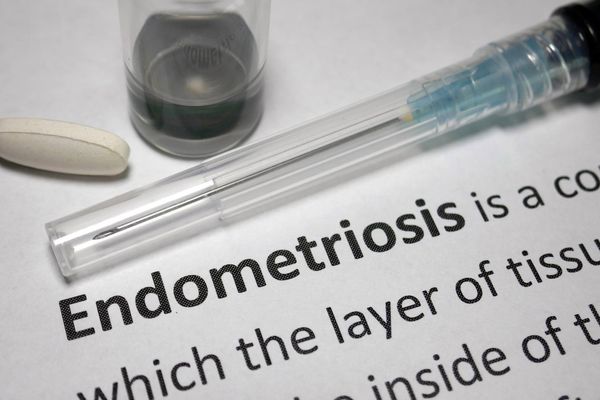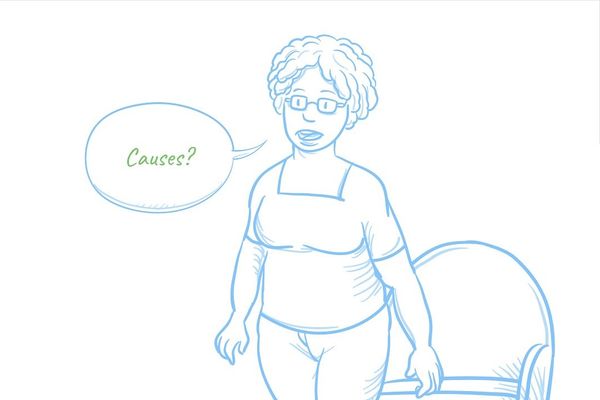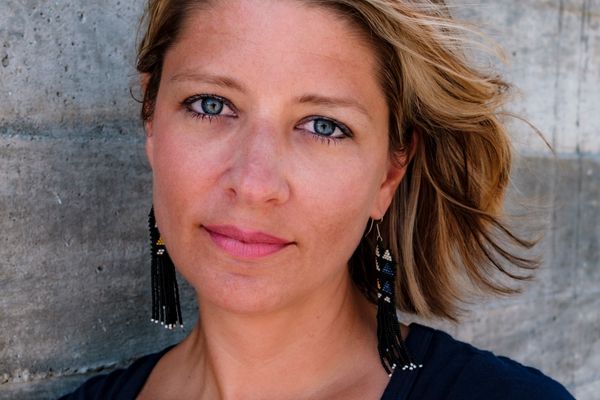At age 10, I felt a warm rush of fluid fill my underpants while attending a friend’s birthday party. I ran to the bathroom to find my underpants and jeans soaked. I was unsure of how to leave without exposing myself as the first of us to get her period while most of my friends hadn’t even bought their first training bra. At home, my stepmother sighed and handed me a large cotton pad. “I wasn’t ready for this,” she told me. Neither was I.
From their onset, I could count on my monthly periods to be seven to 10 days of torture. When I described the painful cramps, back pain and nausea that accompanied my heavy flow to my stepmother, she shrugged her shoulders and offered me some Advil. “Being female is painful. You just have to grin and bear it,”
I mentioned the symptoms to my doctor who brushed off my concerns. “It’s just bad luck. Some women have difficult periods, or you may just have a low threshold for pain,” she told me. The message I received was that my pain was normal and I was overly sensitive.
Throughout my adolescence and 20s, my pelvic pain became increasingly worse during ovulation and bleeding. I averaged about 14 pain-free days per month, which meant I was doubled over at least half of the time. I’ve always been a social person with an active lifestyle, but I often found myself dreaming of lying in bed wrapped in electric heating pads. I popped more Advil and “dealt with it” by minimizing to myself the stabbing, knife-like agony I experienced when I stood up, moved or engaged in physical activities, including sex. Maybe if I had a positive attitude and didn’t complain so much, my situation would improve.
I continued to seek answers from doctors who suspected that I had endometriosis but could not confirm the condition unless I had laparoscopic surgery. When I asked what needed to happen before I had surgery, they told me it was elective — an option available only if I couldn’t manage the pain, which made me feel emotionally weak. If they didn’t think it was necessary, why would I undergo surgery? On more than one occasion, a medical professional asked if I was in a serious relationship, and if so, did I have plans to have children soon. I learned that in some medical circles, endometriosis was dubbed the “working woman’s disease” and pregnancy was considered a cure.
No one seemed in a hurry to diagnose me so I carried on until, one day, I passed out at work from a ruptured cyst. At age 26, I had emergency laparoscopic surgery and was formally diagnosed with stage 4 endometriosis because of the large number of implants and endometrial cysts that were attached to my pelvic cavity, digestive tract and rectum. The surgeon told me that they left some of the tissue inside me because he wasn’t trained to remove it from all of my organs. A month post-surgery, my endometriosis flared up again. Had my primary care doctor suspected I had endometriosis when I first got my period, it wouldn’t have taken me 16 years to be diagnosed.
Painful periods are a sign of endometriosis
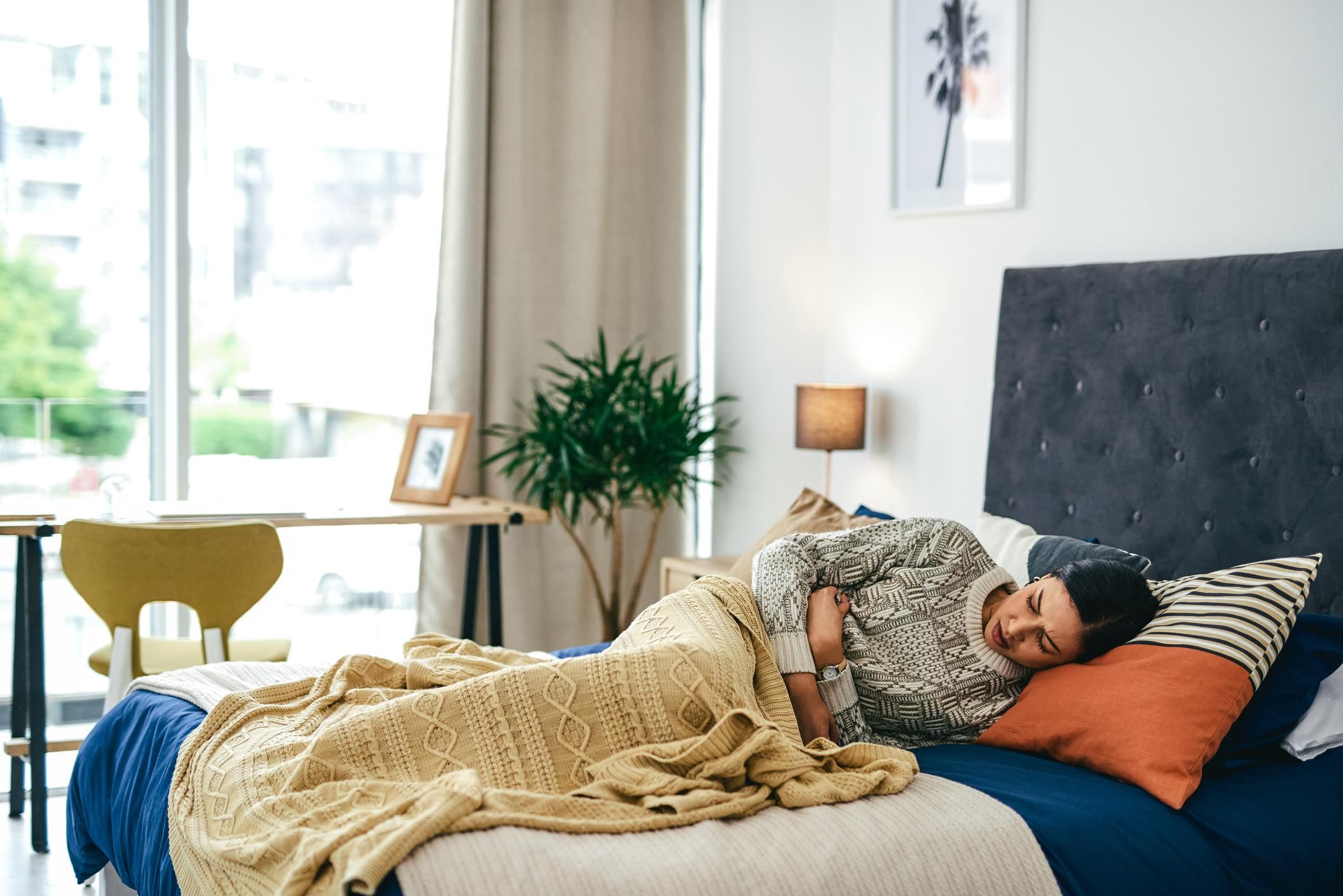
iStock.com/Charday Penn
For centuries, women and girls experiencing heavy bleeding and cramping, known as dysmenorrhea, during their periods have been gaslighted by doctors and the medical community who dismissed their pain as normal or were told that the pain was all in their head. We now know that these are the first and most common symptoms of endometriosis, an incurable pelvic condition and chronic illness where the endometrium, tissue similar to the lining of a uterus, grows in the pelvic cavity and other parts of the body and attaches itself to female reproductive organs, the bowel, intestines and appendix. It responds to a woman’s menstrual cycle, resulting in inflammation.
Other symptoms experienced by the 10%-15% of people of reproductive age who have endometriosis include chronic pain; reduced fertility; organ disfunction; abnormal periods; painful sex; and gastrointestinal issues, such as extreme bloating, painful urination and bowel movements, nausea, diarrhea, and constipation.
In patients ages 18-45 years, the average delay in receiving a definitive diagnosis from a medical professional is 6.7 years. Endometriosis symptoms can be attributed to other gynecologic and gastrointestinal diseases and are often overlooked or mistreated. The absence of a diagnostic test that would definitively confirm endometriosis points to a lack of research and funding for a condition that, according to the Endometriosis Foundation of America, affects approximately 200 million women globally. Normalizing symptoms and pervasive myths that pregnancy cures endometriosis prevent women from advocating for themselves and receiving proper care.
Race and socioeconomic factors can further delay a diagnosis
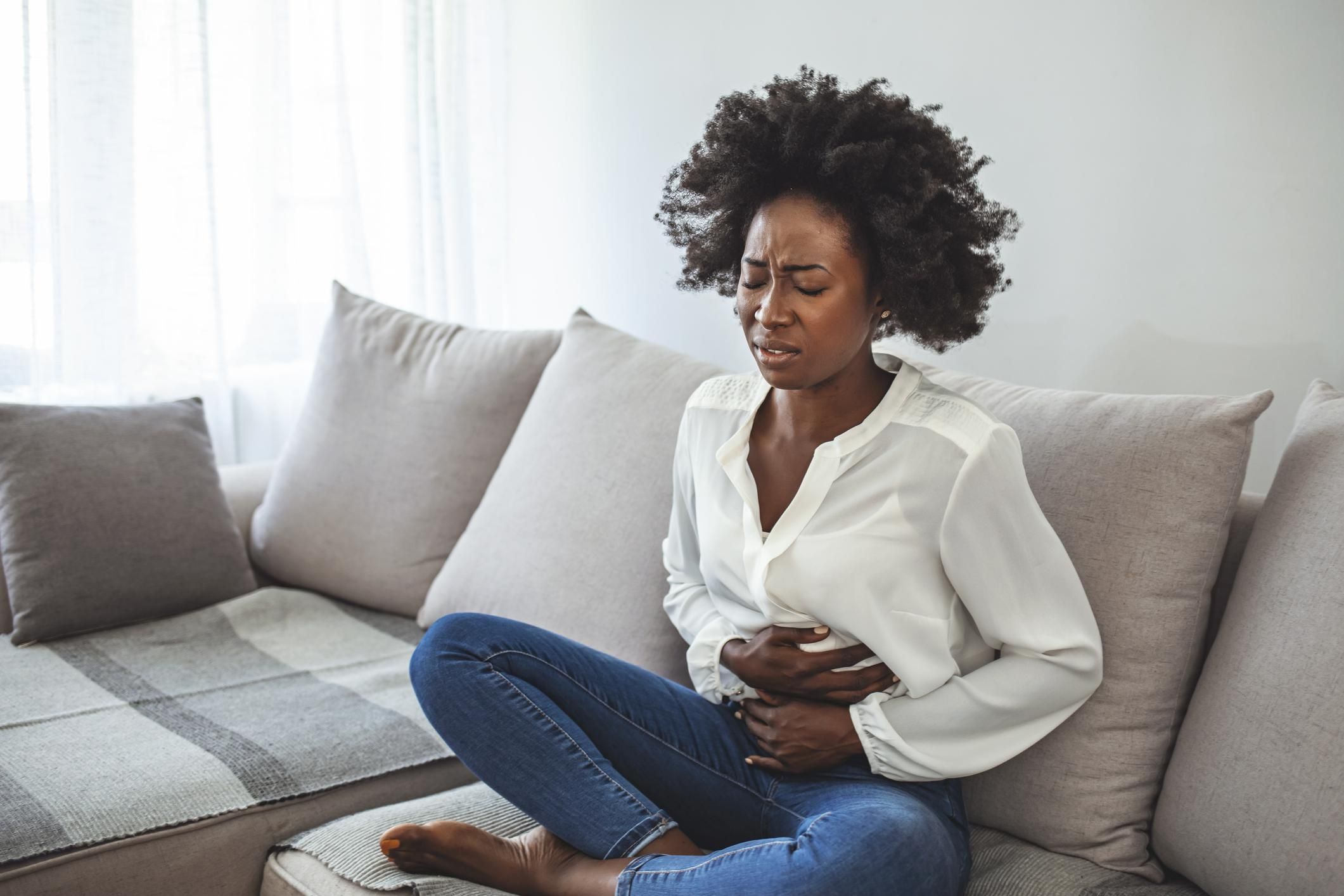
iStock.com/dragana991
Dr. Jessica Shepherd is an OB-GYN at the University of Illinois at Chicago and serves as the director of minimally invasive gynecology. She is also a women's health expert and member of HealthyWomen’s Women’s Health Advisory Council. Shepherd believes that Black women are less likely to be diagnosed with endometriosis than other women.
“In addition to being overlooked for pelvic pain for endometriosis, race can also influence Black women's ability to access healthcare, being able to discuss pain profiles adequately and obtaining appropriate management,” Shepherd said.
The economic impact of endometriosis and lack of funding and research
Being left in the dark for years not only means women’s pain goes unaddressed, but their daily lives and mental wellness also suffers. According to a multisite study by the World Endometriosis Research Foundation Global Study of Women's Health, women with endometriosis lost, on average, 10.8 hours of work weekly. In a 2018 study, many respondents reported that their endometriosis significantly interfered with their family life (45.7%), social life (40.1%), education/career (42.9%) and sexual function (68.1%). They also reported that it led to other conditions, including fatigue (93.6%), gastrointestinal issues (91.8%) and difficulty sleeping (87.4%). Women with the disease are also at risk for anxiety, depressive symptoms and other psychiatric disorders.
While endometriosis has become more visible, thanks in part to celebrities like Lena Dunham, Halsey and Julianne Hough speaking out about their own experiences with the disease, we still have a long way to go. Younger generations are using social media platforms to access information and find community. The Netflix documentary short Period, End of Sentence took home a 2018 Oscar, and advocacy groups are growing in numbers. All underscore the importance of finding a good doctor that is not only informed about endometriosis but who will be an ally. Yet those with limited access to healthcare are at a greater disadvantage.
“There needs to be an improvement in communication in the medical field with endometriosis. The stigma of pelvic pain needs to be taken away,” said Shepherd.
I wish doctors had taken my concerns more seriously and hadn’t left it up to me to navigate this life-altering disease alone. Endometriosis has affected every facet of my life, and while I can’t turn back the clock, I now know not to dismiss or minimize my pain. If something doesn’t feel right, there’s a reason for that. It shouldn’t take years or decades to receive a diagnosis; the medical community needs to advocate for endometriosis as much as patients do.
- What You Don't Know About Endometriosis—But Should ... ›
- My 19-Year Journey to an Endometriosis Diagnosis - HealthyWomen ›
- It Took 3 Decades for Me to Receive an Endometriosis Diagnosis ... ›
- Endometriosis - HealthyWomen ›
- Why can it be so difficult to get an endometriosis diagnosis ... ›
- Why You Should Be Talking About Endometriosis - HealthyWomen ›
- True or False: Endometriosis - HealthyWomen ›
- Is It Endometriosis or Endometrial Cancer? - HealthyWomen ›
- My Hysterectomy for Endometriosis Wasn't the Right For Me - HealthyWomen ›

